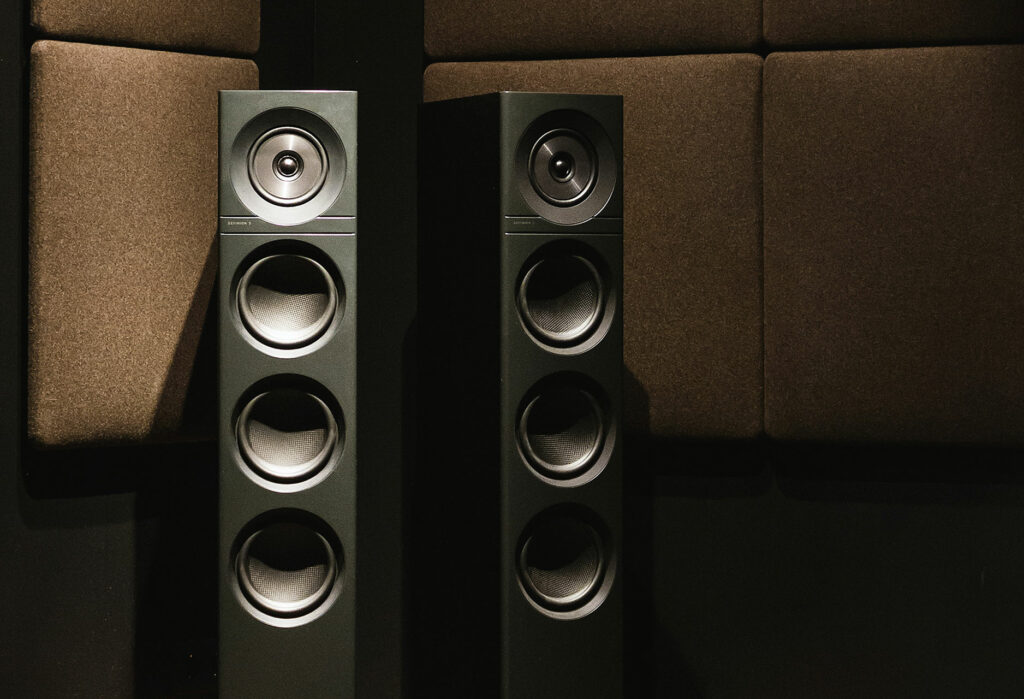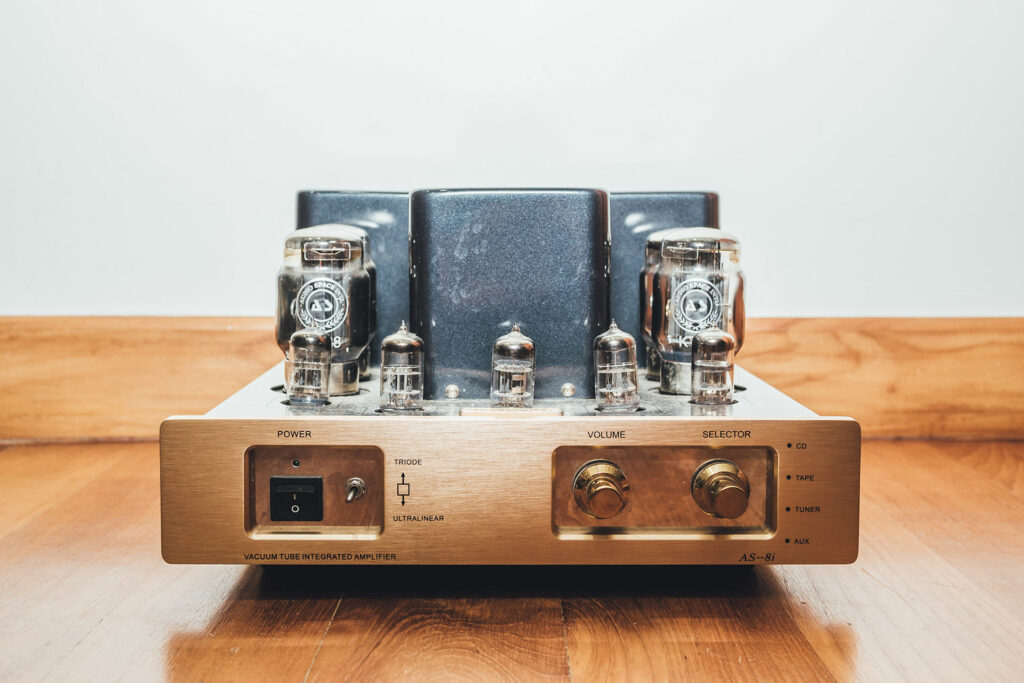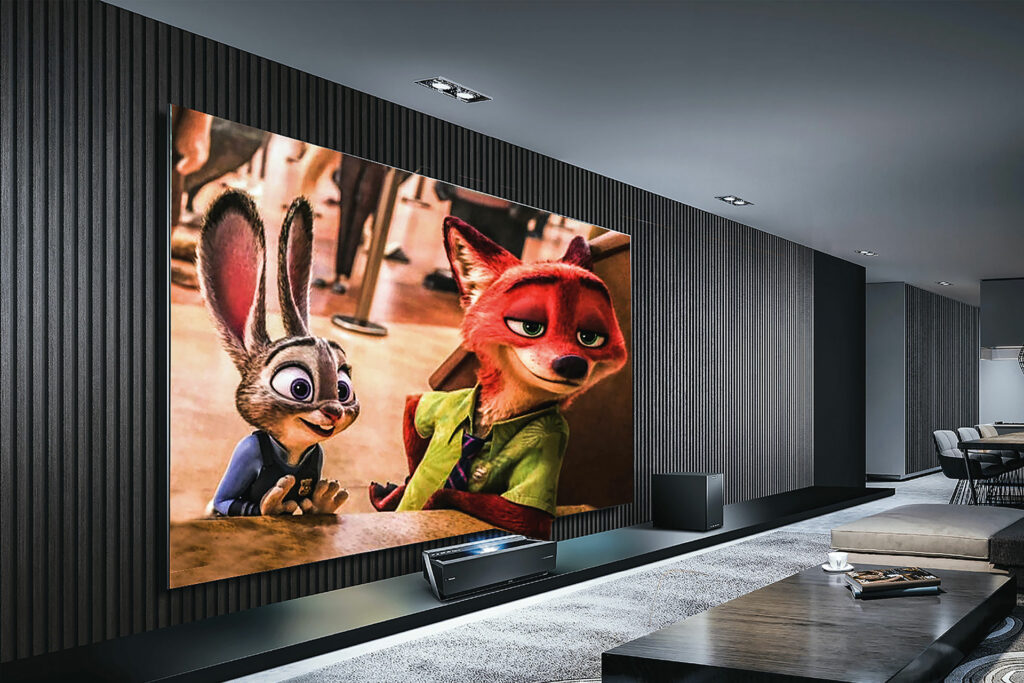By Jerry Del Colliano
Anybody who’s been in the audiophile hobby, even for a little while, knows that when they enter the realm of the audio salon or stereo store, they can pretty easily ask for (and get) a 20-percent-off discount on any standard audiophile equipment. Other than during the COVID pandemic and mainly because of supply chain issues from Asia for both parts and finished goods, this 20-percent-off discount is more a “right” than a “courtesy” in the hobby. And while it seems like paying less is always a benefit, upon a bit of additional consideration and research, it becomes easy to see how this practice is potentially keeping your local dealer from selling more of the latest and greatest stuff. It may actually even be putting them on track to ultimately go out of business.

How Does Profit Margin on Audiophile Equipment Work?
Here’s an insider’s look that you have likely never read in the old-school audiophile print magazines. Imagine that we are talking about an audiophile electronic component, be it a an audiophile DAC/streamer or a stereo preamp/DAC, or maybe even a power amp, which typically have 40 points of margin. What that means is that before shipping, or any kind of additional deals from the manufacturer (like pre-pay discounts or yearly volume incentives), a $10,000 amp will cost the dealer about $6,000. Floorstanding speakers, bookshelf speakers, powered subwoofers and in-wall-type custom installation products often come with more margin such, as 50 points. Audiophile cables and accessories can have pretty fat margins, too, where other products like headphones, video monitors and other highly mainstream electronics (think: Roku, Apple TVs, Bluesound, HEOS, Sonos type products and video) don’t pack anywhere near as much profit margin by design. If you are wondering what Noel Lee’s (the founder of Monster Cable) legacy is, it is back in the 1970s, teaching dealers how to add a nearly all profit elements (speaker cable from the old stereo store spool) to an existing audio or home theater sale to restore some of the needed margin for a retailer to survive or potentially thrive.
Please use scale here to be relevant to your specific and personal budget, but for the sake of round numbers, we will use this $10,000, 40-point electronics sale as our example. If you receive a 20 percent discount, the subtotal on your purchase is about $8,000. Some audiophiles play games with taxes by buying product out of state in places like Oregon or Delaware, where there is no sales tax, but that is likely an issue in the amount you spend going out of state to buy things, which is the topic of a whole other article for a later time. Theoretically, you are supposed to pay that sales tax into the state where you live, and God help you if you get caught not doing it in an audit. The potential penalties easily remove any benefits, thus defining penny wise and pound foolish.
The total gross profit on the sale without any other elements, be it a warranty or cables or something else of higher margin, leaves $2,000 total dollars for the dealer. Let’s clear up a volume question, too, which that most AV dealers and audiophile salons don’t do big volume of $10,000-plus transactions. In a perfect world, they would close a few per day, but there likely isn’t one traditional brick and mortar dealer in the North America that does that kind of volume – even a high-volume Magnolia location in a well-off part of the country.

What’s Not Included in the $2,000 Gross Profit of This Deal?
There’s so much more that goes into running a retail location in terms of costs and logistics that most audiophiles don’t spend a lot of their time worrying about.
Some of these costs include:
- Rent/Mortgage
- Commissions/salaries
- Insurance
- Bank loans for “flooring” components
- Social Security
- Health care costs
- Utilities
- Worker’s Compensation Coverage
- HR and other ancillary costs
- General overhead
And this is only a partial list of what it takes to keep the doors open at your local stereo store.
It is easy to see how $2,000 of profit from a $10,000 amp sale dwindles down to nothing, and very quickly.
Is It Your Problem to Make Your Local AV Dealer Profitable?
Nope, it isn’t – but at the same time, you can’t complain about needing to travel significant distances to hear different and varied products. You can’t complain about not getting excellent localized service. You can’t complain about not having professional and enthusiastic salespeople to help you in your journey in the hobby. All of these factors make being an audiophile a hell of a lot more fun and that is the goal here, right?

What Should You Expect from Your Dealer When You Respect Their Business Model?
You should strive for an honest, working win-win relationship with your local dealer(s). Having done my fair share of higher-end audiophile sales, one of the top ways to get a good deal on your next audiophile move is to make sure that you have a history of actually buying something from your local dealer. Let me rip the Band-Aid off for you here on this one, because if you are the guy who’s been in to the dealer six times for hour-long demos to tell the commissioned salesperson that you “need to check with your spouse/wife” before you buy speakers – you are not getting much respect from the sales staff and ownership unless your historical record of spending is pretty impressive. You need to have a relatively recent track record of spending at least some money with the dealer, and then things get a whole hell of a lot better. And it isn’t out of bounds for you to remind the dealer what you’ve spent with them and/or done for them at these key times in your ongoing negotiations.
When you have that history of spending at least a little bit of money with the dealer, you can ask for some special treatment that makes the audiophile journey a lot more fun and a lot less grief. This works in all venues of luxury goods. Darling Nikki, the woman at the Jimmy Choo store, knows me by name and knows that I will buy my wife a fancy pair of shoes from time to time, thus I get excellent service (anti-Pretty Woman effect) in the rare event that I roll into their gorgeous store on Rodeo Drive. In the brief period of time when I could afford to charter a private plane (I need a winning Powerball ticket so badly these days), the charter companies that I had worked with knew to give me a respectable offer. Once, I got stranded in Monterey after coming in second place in a golf tournament at Pebble Beach. I had chartered a small jet with another firm, but when a pilot at another charter service saw me having an issue, he asked if I wanted to ride back to Van Nuys with them at no cost. Boy, do I miss those days, and what a benefit, right?
What Audiophile Goodies Can You Ask For as a Loyal, Paying Client?
- A respectable (but perhaps not always 20 percent) discount on gear
- No-fuss trade-ins with excellent retained value
- E-waste recycling
- Free delivery
- Help with installation and maintenance of other AV systems in your home
- In-home demos of products especially when the store is closed
- Access to special events, trade shows and more
- Access to technical support people at the audiophile companies, who can help get you a level of excellence that no dealer can give you on their own
- Maybe even have them procure products from other dealers from other parts of town, the state or beyond, so that you can stay loyal to said local dealer
- Endless advice, consultation and insights should also be expected
What Can Your Local Dealer Expect From You?
- You will understand and respect their business model, so that your upgrade path is clear, easy and not financially difficult.
- You will not buy gear out of state or go off seeking ways to save $300 on a $6,000 transaction when you expect the local dealer is close enough to the other pricing.
- You will keep an open mind about potentially buying an audiophile component new or demo from your local dealer when you might have been able to save a little bit of money finding it used.
- Knowing that audio, like the automotive business, often has yearly volume incentives, you will do a deal with your local dealer to help them meet their profit goals and even will verbalize that with them. They might not care for all of their brands but they will care that YOU CARE, and that is an easy way to make friends and influence people in this space.
- If you buy gear outside of the scope of your local dealer, you don’t expect them to service said components without paying them for such work.
- You will vigorously refer your neighbors, friends and local audiophile enthusiasts to your local dealer, as nobody sells their services better than you, the happy client. Should dealers already ask for this free perk? Yes, they should, but most AV dealers are simply terrible marketers. so when you can help them do what they should do for themselves, you earn some of the goodies listed above. I had to change custom installers, and my new firm worked with Elon Musk when he lived in my old hood over by OJ’s old place in Brentwood. Musk loves video games and plays them on a gaming PC through a super-bright commercial projector and screen. He was using three of the biggest $170,000 per pair Sonus faber speakers, thus he had to buy four. I was able to help my dealer, Future Home, find a home for a virginal yet solo $85,000 audiophile speaker that was purely dead inventory. I’ve helped with other audiophile design challenges, and they’ve helped me in countless ways to keep my Crestron Smart Home kicking ass and taking names. This is what I mean by a win-win, and it is both easy and free to do while everybody wins.
- Review your local dealer online, be it at Google, Yelp, Angi, Better Business Bureau, Trust Pilot, AV forums and elsewhere like the comments section of our dealer pages. This costs you nothing and is of value to them when, yet again – they should be asking you for this already, but don’t hold your breath. For example: some dealer who has say, four 5-star reviews gets a 1-star review on Google, which puts them below the ratio where they can get knocked out of local search because of a sub-4-star review.
- Digging deeper into writing excellent and meaningful online reviews, taking the time to put unique photos and copy that explain the strengths of the dealer in specific always helps. Never copy the same content, as that is considered “duplicate content” in the world of search engine optimization. That’s really bad in terms of SEO, thus it doesn’t help anybody. What’s good is being very specific in naming people, skills, benefits and other details for each of the reviews. Also, don’t just write said reviews in a vacuum, meaning send the dealer a link.
Some audiophiles don’t care if they have a local dealer or two (or more) to be able to work with in their area. Others play the game to max out every possible penny of discount and don’t care about the consequences. We understand that position, but that’s not how we suggest the future of the audiophile hobby will improve with the huge, pending demographic changes coming to the hobby.
Building win-win relationships with your partners will make for a more beneficial and less stressful outcome. The most important part of this is to have a conversation with your retailer. Offer up some of the ideas that I outlined for you above. Ask him or her as to what they can do for you. With a little understanding of your business model and some equal respect coming back, you are set to have more and more fun with less and less stress in a hobby that hasn’t really figured out that COVID is “over” (at least in terms of a supply chain issue), let alone that their core clients are about to change in a way the likes the specialty AV world has never seen. Will there be lots of new customers past 2024? There sure will be. They will be younger, more diverse, seeking real-world values, and they think nothing of buying their gear from Amazon or any number of other outlets online. Building loyalties between the dealer and the consumer is a way to keep the local, organic business of specialty AV thriving before huge, pending changes.
What is your relationship like with your dealer?
What would you do to help them, if you wanted to do so?
What could they do to earn more sales from you?
We’d love to hear from you in the moderated comments below. Post away. We keep a close eye on our comments and approve them quickly.




Over forty years ago Etsuro Nakamichi told me that his product must be sold on its merits, not its sale price. He was right. No industry nor manufacturer gives the retail dealer five cents more in profit than they need to keep the lights on and make a fair profit. No dealer giving twenty percent discounts will survive.
Likewise, no manufacturer who does not condone this activity by their dealers will survive.
But every ten or fifteen years the industry tries this business model and the rapid attrition of dealers and manufacturers ensues.
Many of today’s top audiophile companies charge because THEY CAN – not because they HAVE TO.
It is your choice to buy it or not.
Thanksgiving at my country club went from $70 per head (pretty fancy) to $180. We eat at home now and share the event with our neighbors. The club lost out.
Anybody with a NAK Dragon tape deck – please email me as I am looking for one for my system.
I own or partner in movie theaters with ten screens with about 600,000 admissions a year . I have offered my primary dealer and a number of manufacturers the opportunity to show , cost free , promotional ads . So far only one manufacturer has taken advantage of my offer with my dealer and at least one other manufacturer working on ads that meet theatrical projection requirements .
That seems like a VERY FAIR offer on your part.
I wonder if production of a TV commercial is the issue for these people. Cable TV advertisers would make the commercial for them just so that they could get a cheap spot.
j
Along the same lines, I have to laugh a little when I see people gripe about “on line dealers” charging for return shipping….or charging a 5% restocking fee….which brings up the question…
Which is worse; paying 5 or 10% more for an item…or no longer having them around when you need parts or service?